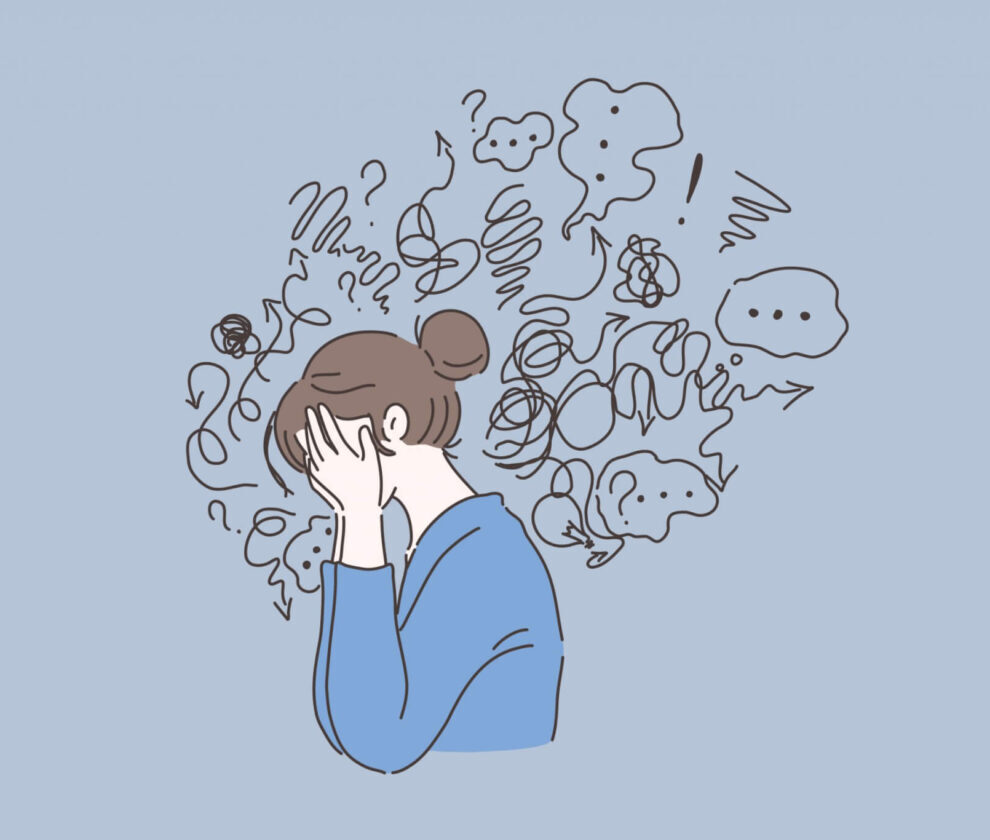As Muslims, we’re used to hearing words such as joy, contentment, peace, excitement, and gratitude paired with the month of Ramadan. While many people count down to this blessed month, awaiting with eagerness to spend time with family, share food, pray in the late hours of the night, and visit loved ones. The goal is to renew our connectedness to spirituality and ourselves. Others experience ambivalence for feeling unprepared, anxiety about fasting the long hours, dealing with demanding sleep schedules, and working during the day. It is common for some to be consumed by thoughts such as:
“What if I’m not good enough?”
“Will I be able to work and prepare meals for the family?”
“Will I be able to pray in the night?”
“What if my worship is not accepted?”
“So and so does so much, I can’t even keep up with the basics.”
However common these concerns are, they are not usually discussed in the open and certainly not validated, as doing so may seem to reflect one’s faith. This is a common misconception- that someone who has anxiety over Ramadan is due to their weakness in faith. Let’s make it clear!
People who express fear or have anxiety towards the month of Ramadan do not dispute the holiness or its significance. But instead, the pressures of performing with excellence become daunting, abrupt change in routines increases stress, and living up to the expectations of others is intimidating. In a world where social media reminders are rampant, we have access to the lives of many who seem to show “effortless” decorating, meal prepping, prayer schedules, games for children, and faith-based classes. As a result, many fall prey to negative self-comparisons and ultimately feel overwhelmed and not good enough. Some individuals try to keep up with this collective experience; however, they drown in self-comparisons and feel low about their “lack of accomplishments .”Therefore, anxiety around Ramadan is not about a lack of faith or a problem with you as a person. It’s about the pressures we put on ourselves during this month.
Someone struggling alone may fear rejection and judgment and may start to question themselves further.
“How and why do I feel anxious about Ramadan”?
“Does this make me a bad Muslim”?
“Nobody else seems anxious, maybe something is wrong with me”?
With this comes a host of unwanted feelings such as increased anxiety, shame, and guilt. When we feel alone in something, we tend to blame ourselves. Knowing that other people may also be facing similar fears is validating. Humans are social beings who crave healthy, positive connections rooted in validation and support.
It is essential to realize that even those who do not have a diagnosed mental health condition struggle with mood disruptions, difficulty concentrating, fatigue due to disruptions of a routine, inability to take medications on their regular schedule, dehydration, and sleep disturbances. These symptoms are exacerbated in many who struggle with a mental health condition, including those with anxiety, and may increase the number or severity of symptoms. Consulting with a medical doctor or mental health professional is imperative to help decide whether one can fast or whether there needs to be an adjustment to their treatment plan. According to an article titled Mental Illness and Ramadan in Muslim Matters by Shaykh Yahya Ibrahim, “There is no shame or sin in not fasting due to medical prohibition.”
Tips provided by Cedarway female muslim therapists, Reena Vanza and Huma Saeedi.
- Be kind to yourself and acknowledge your feelings
- Normalize this experience, remembering you’re not alone
- Minimize unhelpful social media platforms
- Do something small instead of avoiding everything – anxiety is fueled by avoidance
- Remind yourself of the bigger purpose of Ramadan- to connect with God
- Remind yourself that God is merciful
- Plan your day using SMART goals – some structure during this time can be helpful
- Prioritize sleep and healthy food intake
- You are rewarded by intentions – so make intentions throughout your day even if you have trouble completing them
- Be kind to yourself- use non-judgmental words to calm that critical voice
- Surround yourself with supporters
- Ensure you have a self-care plan that is simple to follow
Take-home Messages
- Talk to a professional and or your doctor if your symptoms worsen
- Many people feel anxious during Ramadan- it’s not an indication of your faith
- Reach out to supporting family and friends
- Reach out to a supporting Imam that is aware of the anxiety- if you don’t know who, reach out to professionals who can guide you to Imams they have worked with.





